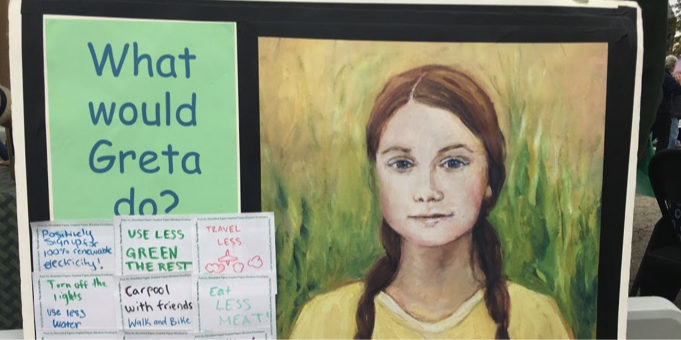Coronavirus is creating fear from Newton, Massachusetts throughout the entire world. International communities are coming together to fight a pandemic. Coronavirus is affecting every country across the globe, and it draws an eerie parallel to climate change. So what could happen if the world banded together in the same way to fight it?
The ‘tragedy of the commons’ is any situation where individuals selfishly take more than they need from a shared resource, depleting it, and hurting everyone. Walking into a Whole Foods on March 15, canned foods are gone and Clorox wipes fill the garbage can. Customers take more than they came for, fearing there may soon be nothing left. As they overstock their own cabinets, they steal from those who come in to buy their regular share but find every shelf empty. This is one example of the tragedy of the commons. Climate change is another.
Climate change disproportionately affects lower economic communities. While developed countries continue to pollute the air, fill landfills, and emit millions of pounds of CO2 every second, they are also the places less affected. Simultaneously, villages in developing countries are in drought or floods and don’t have the money or power to respond. Some people are displaced and others die.
Recently, the extent of our globalization has become exposed. Disease spreads rapidly, and loved ones phone from thousands of miles away. In reaction to coronavirus, countries mandate the closing of schools and businesses in order to respond to current needs and flatten the curve. Similarly, we need to care about the lower economic communities that are currently seeing the effects of climate change. We must also shift our daily lives, understanding that if we continue the way we are, those effects will soon be hitting everyone. Wherever you are: take fewer flights. Reuse what you already own. Take precautionary measures. You can fight two crises at once.
Elie Berman is a student at Newton South High School.
Newton students are invited to submit essays on the environment for the Green Newton 30th Anniversary commemoration. Like Elie’s essay, selected works will be published on the Green Newton and GN School Connections websites and in the Green Newton e-news. Click HERE for more information on how to enter.



Recently on Twitter